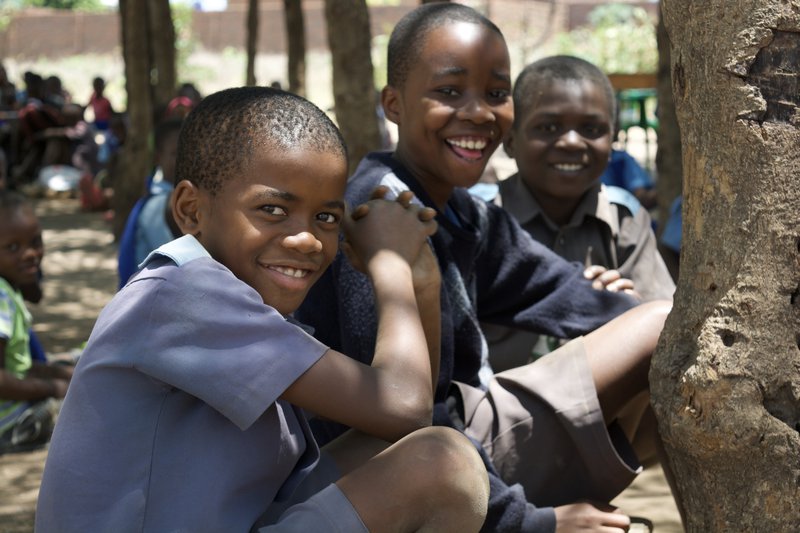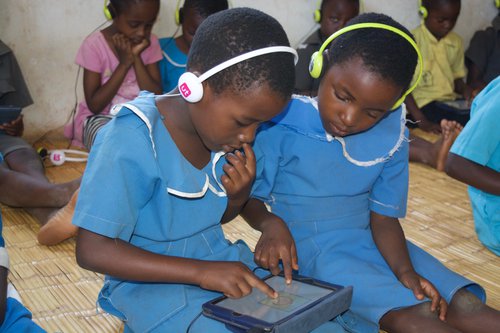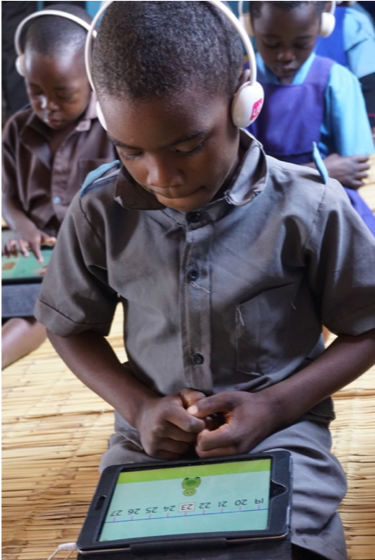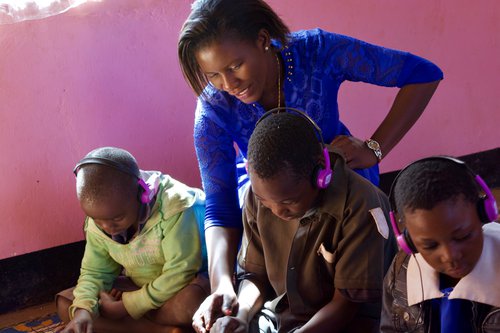Can student-centered, tech-enabled learning transform literacy and numeracy outcomes in Africa?

Sub-Saharan Africa remains the worst performing region in education outcomes with 40 percent of children not meeting basic outcomes in literacy and numeracy. In Malawi and Zambia, the 2018 World Development Report finds that more than 80 percent of seven-year-old students in schools cannot read a single word. The above does not take into account the 61 million out-of-school primary children worldwide, 50 percent of whom reside in Africa.
Beyond matters of access and quality in education, we also suffer from a global teacher shortage. UNESCO Institute for Statistics (UIS) recently projected that to meet the rising demand for school places, sub-Saharan Africa will need to recruit more than 6.3 million teachers to achieve universal primary education by 2030. And for those in the classroom, educators are often teaching class sizes of 50–70 students, a number that nears the hundreds in refugee camps.
“Why wait a 100 years? Bridging the gap in global education”, by Rebecca Winthrop at The Brookings Institute asserts that “without a fundamental rethinking of current approaches to education, it’s going to take another 100 years for children in developing countries to reach the education levels achieved in developed countries.” We do not have the luxury of waiting 100 years in Africa and with the youngest and fastest growing youth population, the stability of future generations is dependent on the actions we undertake today.

At Omidyar Network, we believe the education sector requires a substantial flow of new innovations, compassionate leadership, and diverse funding to disrupt the status quo and reach the millions of learners left behind. We also believe that putting the child at the center of quality learning, both in school and out, provides a path toward improving people’s lives as well as the lives of their families, communities, and future generations. That is why we are excited about our investment in Imagine Worldwide.
At Omidyar Network, we believe that putting the child at the center of quality learning, both in school and out, provides a path toward improving people’s lives.
A Bold and Big Bet
Technology — used appropriately and in the right amounts — in learning can serve as a tool to drive access and equity especially where widening chasms exist in education quality. With this frame and a deep background in evidence-based evaluation, Imagine has set out with both a bold vision and a big bet: to investigate whether children, with research-based curriculum and pedagogy, on tablets in their hands, can become literate and numerate, further providing evidence on whether autonomous learning works for whom, and under what conditions.

Autonomous learning refers to a student engaging in learning at her own pace where the student takes primary responsibility for her learning and the pace of that learning. In settings such as Malawi, these solutions do not require internet connectivity and can be charged with simple solar powered approaches. Autonomous learning doesn’t just support individual students, but provides further assistance to the teacher who remains integral in the learning process. Where most classroom learning relies disproportionately on the teacher — the lesson plans, content, curriculum, administrative tasks, grading, and more — autonomous learning offers a method to unburden the teacher who is then better able to focus on areas such as class facilitation, student engagement, remedial support, and a holistic approach to student development and learning. Moreover, learners who have no access to formal education can have access to quality curriculum and instruction in their hands, with adults and caregivers playing a facilitative role.
In partnership with Voluntary Service Overseas (VSO) (through the Unlocking Talent program) and onebillion, a finalist of the Elon Musk-funded XPRIZE, Imagine will begin pilots in Malawi working with both in-school and out-of-school populations, including children living in refugee camps. Over time, the team will expand their work across new geographies with additional technology and implementation partners utilizing culturally and linguistically relevant content. In doing so, Imagine intends to build evidence on the impact of autonomous learning in achieving critical learning gains, and utilize their learnings to support the improvements and impact of autonomous learning solutions for learners in various locations and environments across the globe. In total, Imagine will execute four pilots over three years, starting with Malawi, and building a portfolio of evidence with thousands of children in school and out of school in different countries.

Engaged and Empowered
Seven-year-old Arthur, a learner in Malawi who is enrolled in Unlocking Talent, which uses the onebillion software, shared, “I like it because the children do not mess around…We are learning how to read and write. I like to learn.” A head teacher also commented, “This work is important because the students learn so much more. Retention of students goes up and the dropout rates decrease. Learners are more motivated and more confident about their learning. And this is especially important for the girls — to keep them in school and give them full access to literacy and mathematics.”
Ultimately, we are encouraged by interventions that ignite a passion for learning, that are inclusive, support both the learner and the adult, and are bolstered by data and evidence.
We are at a pivotal moment. We must give each and every child the opportunity that we would want for our own children — the opportunity to learn.
Susan Colby, CEO, Imagine Worldwide
A Model with Potential to Scale
Imagine is led by CEO Susan Colby, previously a partner with McKinsey and founding partner of The Bridgespan Group. Their strong team also includes Chairman Joe Wolf, founder of The Learning Accelerator, and director of M&E Karen Levesque, previously the director of the Center for P-12 Education at RTI International.
Susan shares, “In all my years of working in education and in the social sector, I have never witnessed an opportunity to create change of this magnitude. This solution is transformational and scalable and we owe it to the world to make sure we understand what is possible and how to continue to improve. Until recently, we did not have a way to reach every child with high-quality learning opportunities. We are at a pivotal moment. We must give each and every child the opportunity that we would want for our own children — the opportunity to learn.”
At Omidyar Network, we are excited by models like Imagine which have the potential to usher much needed innovation and access to education and improved learning gains for millions of children — especially the most marginalized. We hope that by generating evidence on the efficacy of autonomous learning and by testing and demonstrating scalable models in this sector, opportunities to leapfrog today’s challenges in education will become possible and in doing so, enable more students to learn, grow, and thrive.